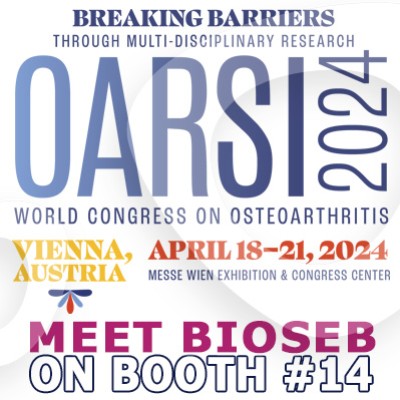Authors
S Chakrabarti, LA Pattison, B Doleschall, RH Rickman et al
Lab
Department of Pharmacology, University of Cambridge, UK.
Journal
bioRxiv
Abstract
Joint pain is the major clinical symptom of arthritis that affects millions of people. Controlling the excitability of knee-innervating dorsal root ganglion (DRG) neurons (knee neurons) by delivering artificial receptors to regulate neuronal activity could potentially provide pain relief. Gene delivery into DRG neurons by injection of adeno-associated virus (AAV) into peripheral organs has had limited success because of the large anatomical distances involved in the periphery. Here we show that the newly engineered serotype, AAV-PHP.S, can deliver functional excitatory (Gq) and inhibitory (Gi) designer receptors activated by designer drugs (DREADDs) into knee neurons of mice to bidirectionally control excitability in vitro, i.e., activated Gq-DREADD increased neuronal excitability while Gi-DREADD decreased neuronal excitability. In vivo, short-term Gq-DREADD activation caused a deficit in motor coordination while Gi-DREADD activation was able to alleviate complete Freund’s adjuvant mediated knee inflammation-induced deficits in digging behavior, a measure of spontaneous pain associated with well-being. This approach may be utilized in translational pain research for peripheral organ specific pain relief.
BIOSEB Instruments Used:
Dynamic Weight Bearing 2.0 (BIO-DWB-DUAL)

 Douleur - Allodynie/Hyperalgésie Thermique
Douleur - Allodynie/Hyperalgésie Thermique Douleur - Spontanée - Déficit de Posture
Douleur - Spontanée - Déficit de Posture Douleur - Allodynie/Hyperalgésie Mécanique
Douleur - Allodynie/Hyperalgésie Mécanique Apprentissage/Mémoire - Attention - Addiction
Apprentissage/Mémoire - Attention - Addiction Physiologie & Recherche Respiratoire
Physiologie & Recherche Respiratoire
 Douleur
Douleur Métabolisme
Métabolisme Système moteur
Système moteur Neurodégénérescence
Neurodégénérescence Thématiques transversales
Thématiques transversales Système musculaire
Système musculaire Functions de motricité générale
Functions de motricité générale Troubles de l'humeur
Troubles de l'humeur Other disorders
Other disorders Joints
Joints Système Nerveux Central (SNC)
Système Nerveux Central (SNC)
 Système sensoriel
Système sensoriel
